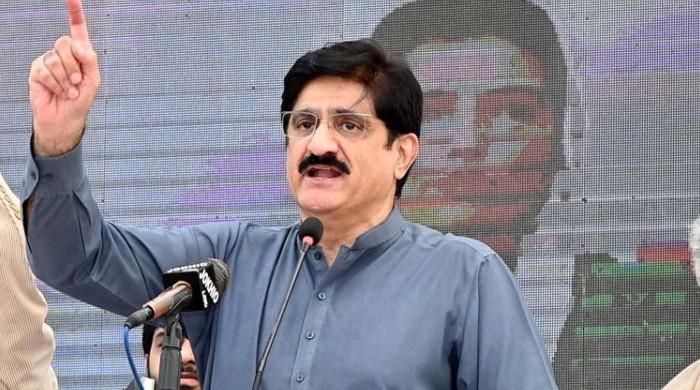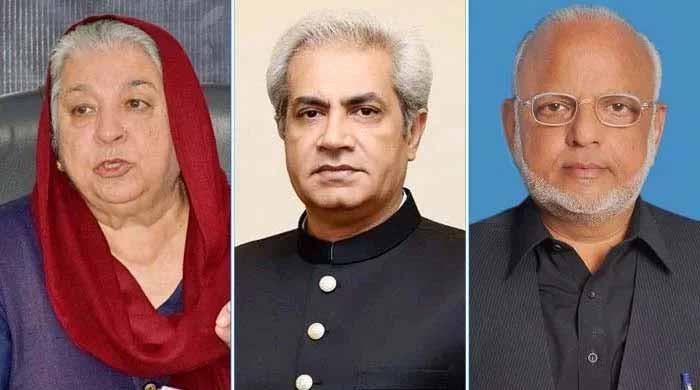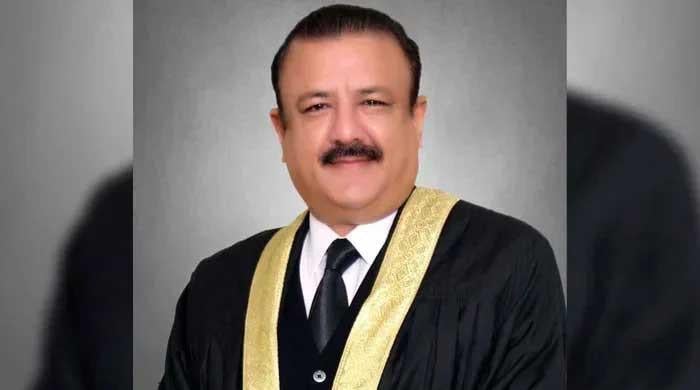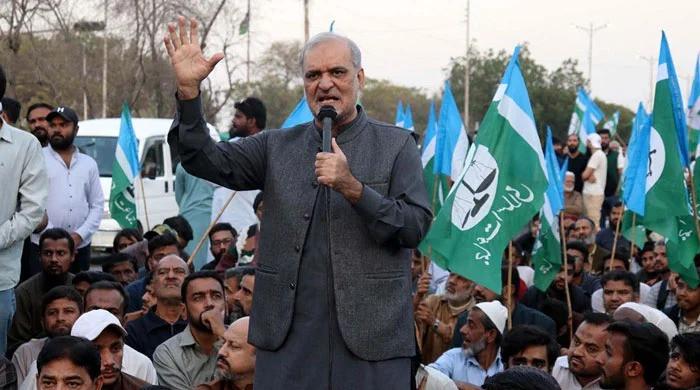ECP issues revised list of Senate election candidates from Sindh
Revised list of Senate candidates features the names of PTI's Hunaid Lakhani, Samar Ali Khan and Hasan Bakhshi
February 24, 2021

- Revised list issued features the names of eight Senate candidates from Sindh
- Three candidates each from the PPP and the PTI are mentioned on the list
- Hunaid Lakhani, Samar Ali Khan and Hasan Bakhshi are the PTI's candidates from Sindh
ISLAMABAD: The Election Commission of Pakistan (ECP) on Wednesday issued the revised list of eight candidates from Sindh for the upcoming Senate elections.
Read more: Senate election 2021: Meet the PTI candidates
The revised list has been issued by the electoral body after announcing decisions on appeals filed against the nomination of candidates for the elections to the upper house.
The list features the names of three candidates of the PPP and the PTI each whereas one candidate of the Tehreek-e-Labbaik Pakistan and the MQM-P.
The PPP's candidates mentioned in the revised list are Farooq H Naek, Shahadat Awan and Karim Khawaja. Hunaid Lakhani, Samar Ali Khan and Hasan Bakhshi are the PTI candidates that are mentioned in the revised list.
Read more: Race to the Senate: Find out how the winner is decided
Shahab Imam of the MQM-P and Yash Ullah Khan of the TLP are also mentioned on the revised list of candidates from Sindh.
The names of candidates for the general and women's seats remain unchanged.
Read more: PML-N leader Pervaiz Rashid declared ineligible for Senate elections
How many lawmakers will take part in the Senate polls?
There are a total of 342 lawmakers in the National Assembly and 728 in the provincial assemblies combined, as per the ECP. All of them are entitled to vote in the upcoming Senate elections.
What is the single transferable vote?
The STV was first used in Pakistan in 1973.
Under the system, each voter gets to cast only one vote per seat category (like in the general elections), but this vote is different in that it can be transferred to more than one candidate in order of preference from a list of candidates provided by the voter.
Simply put, the voters rank each candidate they want their vote to go to by writing 1,2 and 3 against the names of each candidate on the ballot paper.
Unlike the first-past-the-post system, where a candidate wins if they bag the most number of votes, the proportional system is different.
A candidate does not simply win because they attain the most number of votes; instead, they only need to secure a certain 'quota' of votes to become a Senator.
This system ensures that none of the votes are wasted. If the first preference candidate identified by the voter gets enough votes to match the quota, the surplus votes are transferred to second preference candidates. This process continues till all seats in the Senate are filled.









